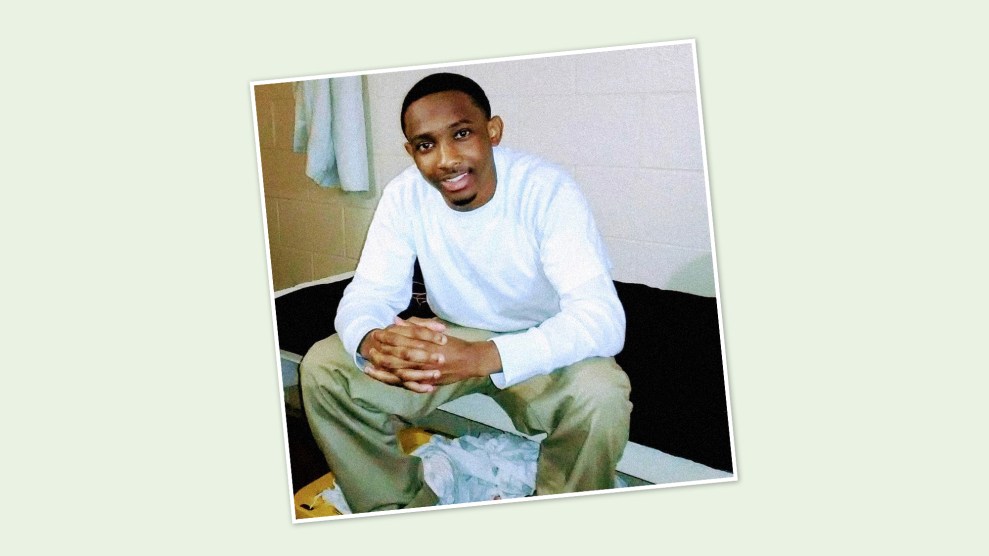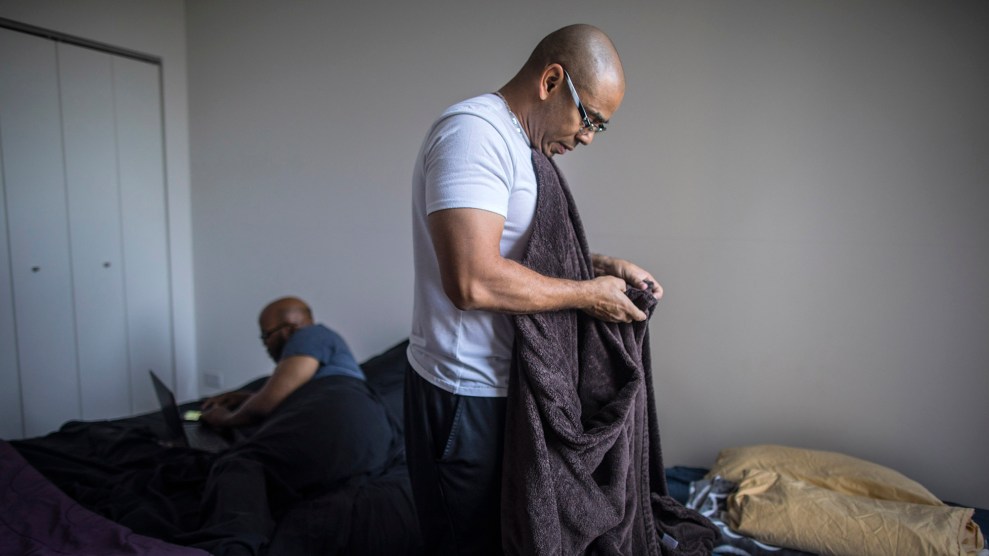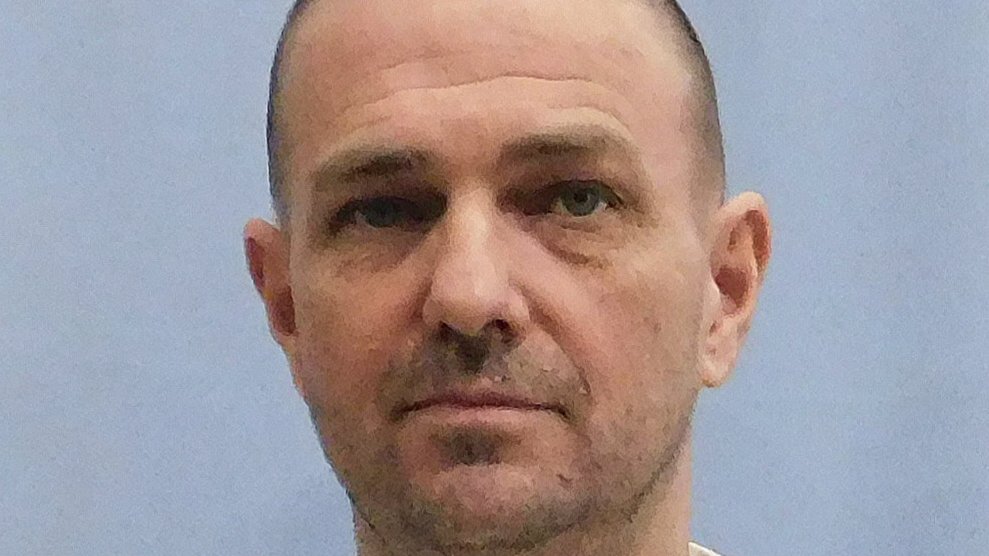
LaKeith SmithPhoto courtesy of the Justice for LaKeith Smith Coalition
LaKeith Smith was 15 years old when he and four other Black teens broke into an empty house in Millbrook, Alabama, to steal an Xbox and other gaming equipment in 2015. The police arrived, and an officer shot and killed Smith’s 16-year-old friend A’Donte Washington, allegedly after Washington ran toward the officer with a weapon. Smith sprinted into the woods, where he was arrested. Then, in a strange but not uncommon twist, the cops blamed him for his friend’s death.
Nobody—not law enforcement, the prosecutor, or the all-white jury—believed that Smith actually killed Washington. The police clearly fired the fatal shot. But Smith was found guilty under Alabama’s felony murder law, which holds that anyone who participates in certain felonies, such as burglary, can be liable for whatever deaths occur during that crime. The other arrested boys took plea deals and received 17 to 28 years in prison. But Smith, who wanted to present his case to a jury, was tried as an adult and punished with 65 years behind bars: If he served the entire sentence, he wouldn’t be free until his 80s.
After his conviction, Smith went to a maximum-security prison with adult men. But this week, he returned to court, hoping for a second chance. For years, his family and friends—and even Washington’s parents—have argued that Smith was unfairly punished, and that he should not spend decades locked up for a police officer’s actions. At a resentencing hearing on Tuesday, the same judge who heard Smith’s original case considered whether to shorten his term. “He needs to come home,” Vernice Washington, Washington’s mother, said before the hearing to Vice News, which published a documentary about the case last year. Smith’s new attorney, Leroy Maxwell, argues that the trial and conviction were unjust, and that the court should have taken Smith’s age into greater consideration.
Smith’s resentencing hearing has brought renewed attention to felony murder laws, which exist in most states, according to the Marshall Project, a criminal justice news outlet that has reported on them extensively. These laws disproportionately penalize young people, women, and Black people, and are used frequently in some jurisdictions: In Pennsylvania, for example, almost a quarter of people serving life without parole were convicted on such charges. No other country in the world has felony murder laws on the books.
Some states have reformed their laws, as the Marshall Project‘s Jamiles Lartey recently reported. After California amended its felony murder statute in 2018, hundreds of people had their sentences reduced. Colorado also lessened its maximum punishment for felony murder in 2021, to 48 years in prison, while Illinois reformed its law so that it wouldn’t apply when police kill someone. Lawmakers in Minnesota and Maryland are considering reforms, too. Kentucky and Hawaii have abolished felony murder.
Back in Alabama, Smith’s sentence was reduced once before. He originally received 65 years in prison—30 years for Washington’s death, and 35 for the burglary and theft. In 2019, a state appeals court shaved 10 years off that total because of a sentencing technicality, according to the Montgomery Advertiser, leaving him with 55 years to serve.
On Tuesday, Judge Sibley Reynolds, a Republican, considered whether to shorten Smith’s sentence again. The judge held the hearing after District Attorney C.J. Robinson, who originally prosecuted the case, acknowledged that Smith’s trial attorney failed to present evidence about Smith’s home life and background that might have led to a lesser sentence. Smith’s family hoped Reynolds might allow Smith to go home, considering the years he’s already spent behind bars. But Reynolds ultimately disappointed them, resentencing Smith to 30 years—still a harsher punishment than his friends received in their plea deals.
“We got a sentence change, but this isn’t the sentence we wanted,” Smith’s attorney, Maxwell, said outside the courthouse afterward. “LaKeith is a victim of a rule, a felony murder rule that disproportionately affects people who look just like him.” Maxwell said the family would appeal the ruling and challenge Smith’s original conviction. “The felony murder rule has got to go,” he said, as Smith’s supporters clapped.
Smith’s parents and Washington’s both acknowledge that the teens were guilty of burglary. But they blame the police for killing Washington, and they want authorities to consider whether the officer who fired his weapon acted appropriately. (A grand jury previously cleared the officer of wrongdoing, according to the Advertiser.) “We never deemed our boys as being innocent,” BronTina Smith, LaKeith’s mother, told Vice in the documentary. “But to come in and open fire on some kids, man—that’s just crazy.”
“I hate this outcome for y’all,” Maxwell, the attorney, said to her and Smith’s other supporters after the hearing. “We’ve been fighting for justice for LaKeith, and today doesn’t feel like justice.”













